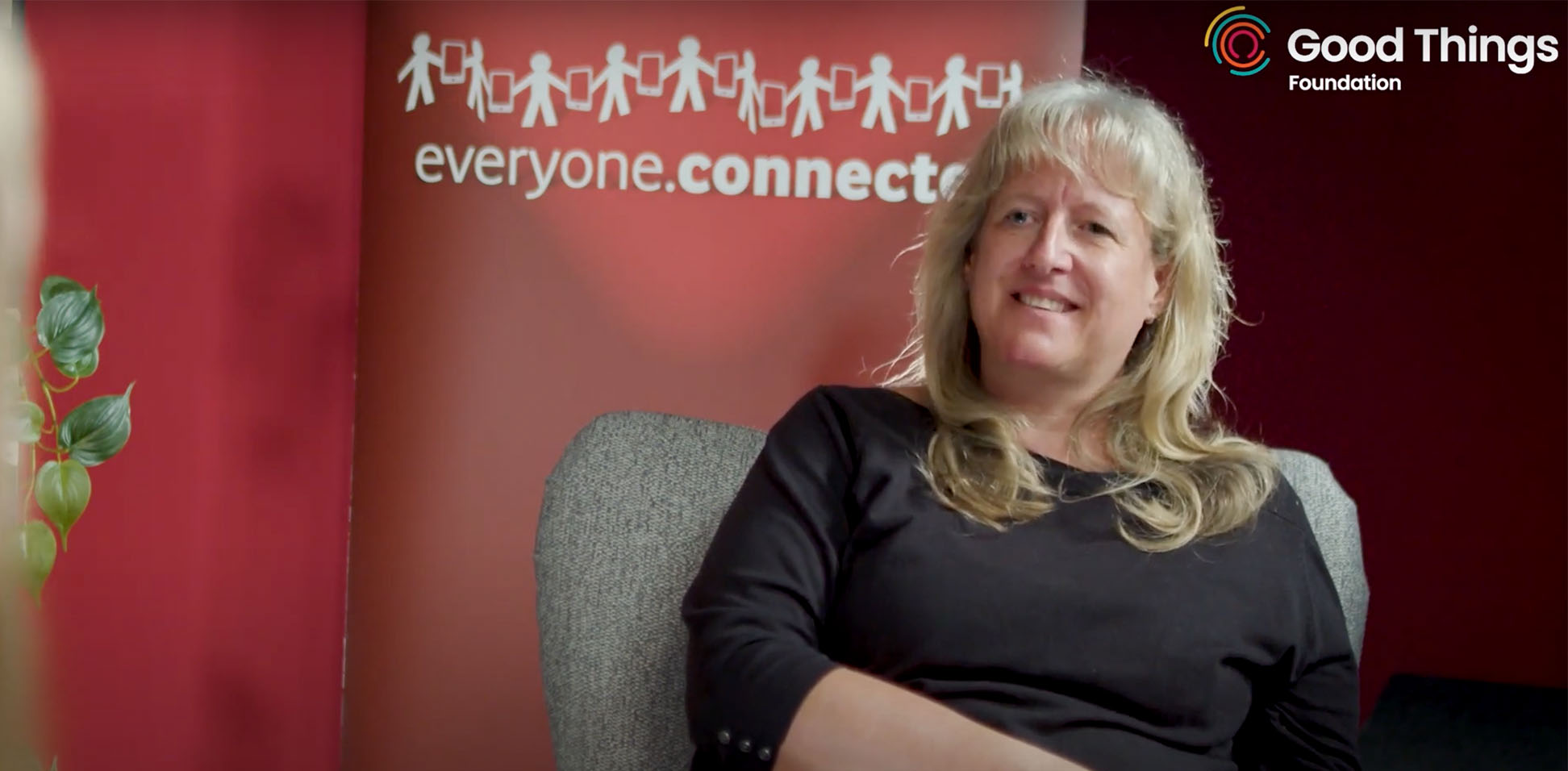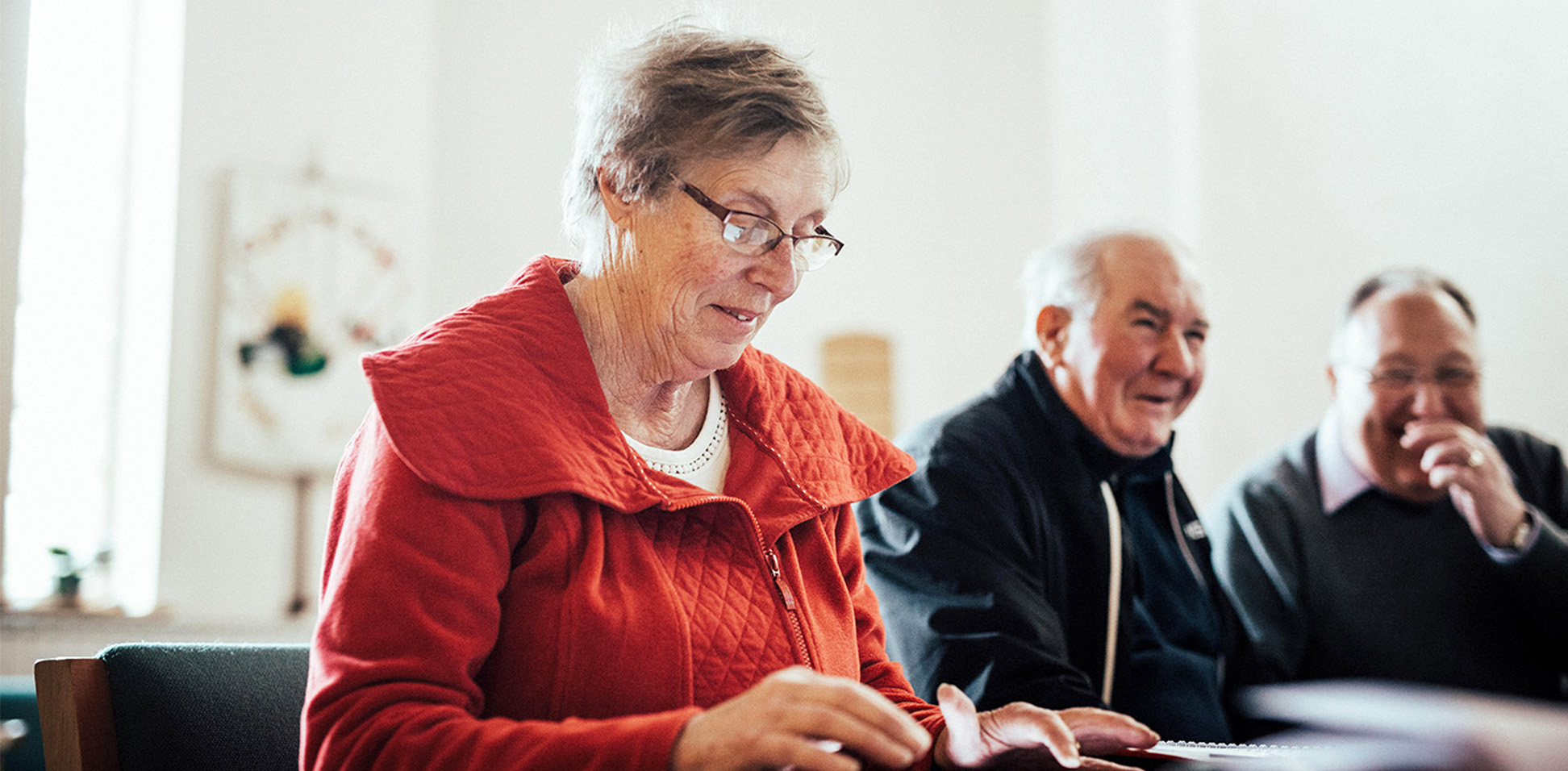Deep poverty and digital exclusion in the UK
Our Director of Evidence and Engagement, Dr Emma Stone recaps on research, a roundtable, and opportunities to address what is now a clear link between deep poverty and digital exclusion in the UK.
Routes out of deep poverty
These days, so many forms of financial support (statutory and discretionary) are digital-first. Bluntly, this means that people’s routes out of deep poverty are either enabled, or blocked, by digital - whether that’s about not being able to afford data or a device, and/or not having the skills, confidence or community support.
"People are coming to us and saying that through being unable to access the internet, they’re also missing out on getting better deals, being able to find out information about additional support that might be available, like local crisis support. And our data shows us that people without internet access have received less crisis support …. this is just terrible, compounding on top of the fact that people are facing financial hardship, is it compounds isolation and social exclusion.”
Emma Revie, CEO, Trussell, Digital Futures for Good May 2024
Links between deep poverty and digital exclusion
Last year, Trussell and Good Things Foundation commissioned WPI Economics to review the evidence on links between digital exclusion and deep poverty, auditing 15 datasets. Their report, 'Exploring the relationship between deep poverty and digital exclusion', found digital exclusion is clearly related to income poverty.
- No access at all to the internet was more prevalent amongst food bank users, at 16%, than the general population (2023 Hunger in the UK)
- Strong links were found between poverty risk factors and families living below a publicly-defined household benchmark - the Minimum Digital Living Standard (MDLS).
Impacts go beyond income.
- 44% of people without any internet access, and referred to food banks, reported being severely socially isolated (Trussell 2023)
- For children, digital exclusion risks leading to worse educational outcomes, which will increase their risks of poverty in adulthood.
“Without access to laptops, tablets, printers and the data and knowledge to use them, children can quickly fall behind with their work and the gap between what they and their peers can achieve grows ever wider… We must recognise that access to the internet is now an essential, not a luxury.”
A safety net - local databanks and foodbanks
In December, Good Things, Trussell, and Vodafone convened a cross-sector roundtable, hosted by Baroness Anna Healy to discuss the findings and implications.
We heard that:
- Many services to support people out of deep poverty, debt, homelessness, and unemployment now have a digital angle
- Local staff are escalating concerns about digital exclusion, and it becoming harder to support families and adults out of deep poverty if they are digitally excluded
- Digital exclusion can be a blind spot in service delivery and innovation - failing to ask and address how people who need digital services will be supported to find and use them
- Many services will already engage people who could face digital barriers, but their staff may not ask, or know how to ask, the questions to elicit this, or offer support
- Signposting to online support can leave people feeling fobbed off
- Food banks and local databanks are a vital safety net, but not enough to exit poverty
- For people living in deep poverty, broadband social tariffs are out of reach
- Digital exclusion impacts every part of people’s lives, not only access to services.
Tackling deep poverty and digital exclusion
At the roundtable, we asked what more could be done by the Government and by our sectors. We saw opportunities for:
- Government to progress more systemic, sustainable solutions; and secure recognition that digital inclusion is a vital enabler in other policy areas - such as financial inclusion, child poverty, employability, health, and tackling homelessness
- Service developers to ask themselves: ‘What is the approach for someone who's digitally excluded’, and explore how their services can support digital inclusion, given the wider benefits to families and adults
- Service providers to recognise that digital exclusion may be invisible, or hard for people to express. Finding non-stigmatising ways to have the right conversations with people who are seeking support around other things was a strong theme
- Researchers and research funders to take up recommendations laid out in the WPI Economics report to improve data collection and analysis.
Together, we have lifted the lid on an important, neglected, evolving issue. Thankfully, we’re not starting from scratch, or speaking into a vacuum.
The roundtable itself proved a valuable forum to feed into the Government’s work on Tackling Child Poverty. And several people around the table were well-positioned to carry the insights into other work, including the Treasury’s Financial Inclusion Committee (which is committed to addressing digital inclusion within its work), Good Things Foundation’s Data Poverty Lab with Nominet, new research led by Citizens Advice, IPPR, and Policy in Practice on social tariffs in four areas: broadband, insurance, energy, and water; future surveys and qualitative research by Trussell, the MDLS team, and a collaboration working on a set of digital inclusion and exclusion questions that could be used consistently across surveys.
In the next couple of weeks, the Department of Science, Innovation and Technology - the lead department for digital inclusion, and for transforming public services - is expected to make its first announcement on digital inclusion. Getting recognition of digital inclusion as a priority across missions and, as importantly, by different Government departments, would send a powerful, much-needed message. Especially for departments whose decisions and services impact most on those living at the sharp end of deep poverty and digital exclusion.
Further information and useful links
Catch up on the Digital Futures for Good episode with Trussell CEO Emma Revie and look out for our final report - pulling together insights from our 2024 Digital Futures for Good series
Read my post 'Money in a digital world: a reflection ahead of Budget 2024', which shares insights from over 20 community organisations working at the intersection of digital inclusion and financial inclusion.
Find out more or request a presentation for an event from the team behind this research:


